
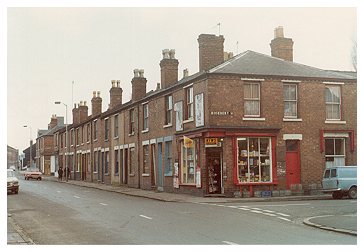 |
The view along Great Brickkiln Street looking towards
the town centre. On the right with the corner shop is Rosebery Street,
which extends to Pelham Street. The building on the far left, in the
distance, is Eagle Works. This was occupied by Wearwell bicycles until
1928, when production moved to Colliery Road. The buildings were later
occupied by Meynell Valves. |
| Looking along Great Brickkiln Street in the opposite
direction to the photograph above. On the left is Salisbury Street which
leads to Pelham Street. Almost every street had a corner shop which
meant that the original population could purchase most things locally.
The next street on the left is Rosebery Street, again with its corner
shop. The tall building beyond Rosebery Street was occupied by Pickfords
removal company. |
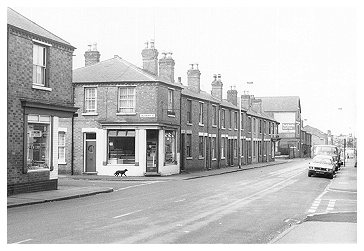 |
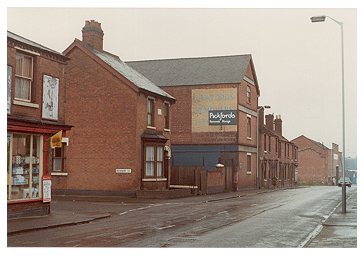 |
A closer view at Rosebery Street and the Pickfords
building. On the far right is the back of Tower Works, also called Ashes
Works. This was occupied by the country's third largest car
manufacturer, Clyno. The company moved to Wolverhampton before the first
world war and originally manufactured motorcycles. In January 1927 the
company moved to a new factory at Bushbury and the works were later
occupied by Midland Metal Spinners who made Presto and Tower brand
pressure cookers, saucepans and kettles. |
| Another view from the Pickfords building looking towards
Rosebery Street and the town centre. |
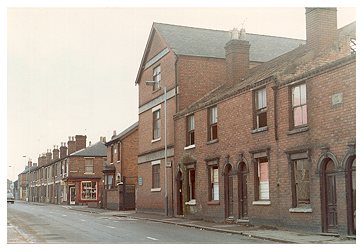 |
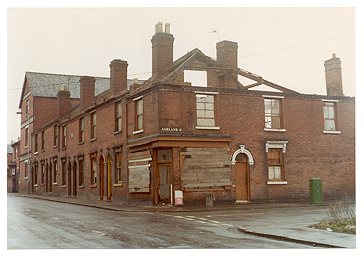 |
A final view of the Pickfords building with Ashland
Street on the left, again with its corner shop. |
| Great Brickkiln Street school is one of the oldest
schools in Wolverhampton. It was one of the original Board Schools that
was opened by Wolverhampton School Board. This was established in
response to the Education Act of 1870. The school opened in 1878 and
replaced schools that were attached to the Queen Street and Temple
Street chapels. |
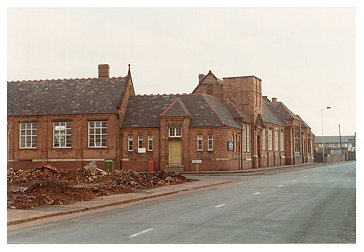 |
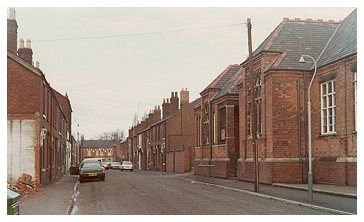 |
The view of Cherry Street with Great Brickkiln Street
School on the right, looking towards St. Mark's Road. |
| Some of the original terraced houses in Great Brickkiln
Street. Cherry Street with its corner shop is on the left before the
school. |
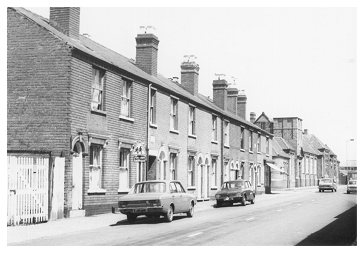 |
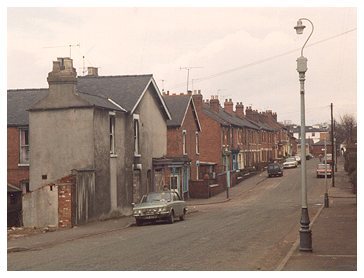 |
The view looking down Humber Road and Yew Street. |
| A final view of Great Brickkiln Street looking away from
town. Cherry Street and its corner Spar shop is on the right and the
school is just off the right-hand side of the picture. |
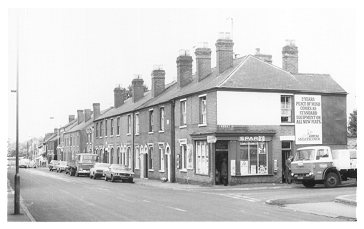 |
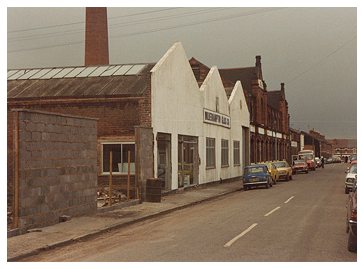 |
Pelham Street was a mixture of houses and factories. The
large factory (Pelham Works) is occupied by Wolverhampton Glass. The
works were occupied by bicycle manufacturers, Rudge Wedge & Company
Limited, which was founded in 1891. In 1902 the company moved to new works in Mander
Street. The building later became the Pelham Laundry premises. |
| The view along Pelham Street looking in the opposite
direction with Pelham Bakery on the right. |
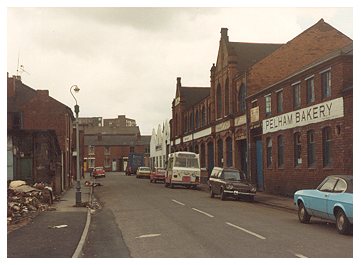 |
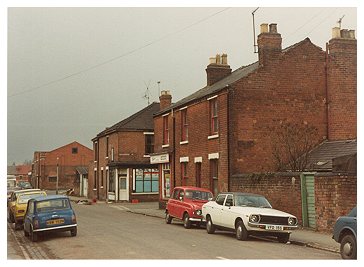 |
Some of the houses that faced Pelham Works. On the
left is Rosebery Street with its two corner shops and in the distance is
the front of Ashes Works where Clyno motorcycles and cars were built. |
| The view looking along Pelham Street towards Kimberley
Street shows more of the terraced houses that adjoined the factories. At
the end of the street is Fort Works which used to be occupied by the
Stevens family who made engines here and later moved to Retreat Street
to form the famous A.J.S. motorcycle company. The works was later
occupied by Clyno and more recently by Midland Metal Spinners. |
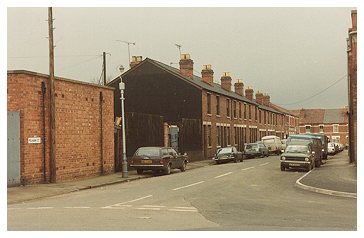 |

|
|

|
|

|
| Return to St.
Mark's Road |
|
Return to the
beginning |
|
Proceed to
Horseley Fields |
|